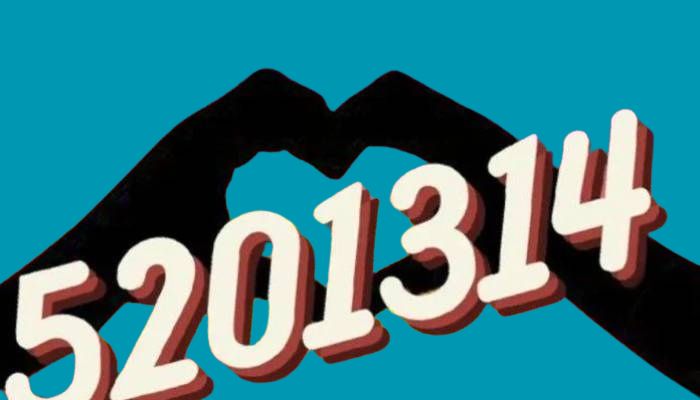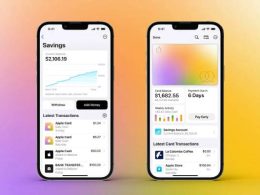Table of Contents Show
In the vast world of digital communication, the way we express deep emotions has changed significantly, becoming more concise and creative. One notable example is the number ‘5201314.’ This sequence has resonated with many, especially within the Chinese community. It’s not just a series of numbers; it represents a deep declaration of love and commitment that goes beyond traditional language barriers.
What is 5201314?
Cultural Significance and Usage
The significance of numbers in Chinese culture is profound, as they often carry meanings beyond their quantitative value due to homophonic similarities to words. ‘5201314’ is a perfect illustration of this, where numerical sequences become embedded with emotional expressions.
The number gained widespread popularity in China and among Chinese-speaking communities worldwide. It is especially prominent on social media and digital platforms, where people use it to declare their love, particularly on significant dates like May 20th, which is celebrated as an alternative Valentine’s Day dubbed “Internet Valentine’s Day.” This date was chosen because ‘520’ sounds like “I love you,” making May 20 a day of romantic declarations online.
Implications for Digital Communication
The adoption of ‘5201314’ highlights a fascinating evolution in the way we communicate. In the digital age, where messages are often limited by character count or require brevity for impact, numbers and codes become powerful tools for conveying deep feelings succinctly. This trend is not only a testament to human creativity but also an adaptation to the changing landscapes of interaction where digital expressions are as meaningful as spoken words.
Exploring the Dynamic World of Social Media Slang
In the ever-evolving landscape of digital communication, social media slang plays a crucial role in shaping our interactions. These numerical codes and abbreviations not only streamline communication but also add a layer of creativity and personal expression. Let’s dive into some of the most popular slang terms that pepper our digital conversations:
1. Heart Symbol (<3)
– What it Means: Love
– Behind the Symbol: The symbol <3 is visually similar to a sideways heart. This simple yet powerful symbol is widely used to express love, affection, and emotional connections.
2. 143
– What it Means: I Love You
– Decoding the Numbers: The significance of 143 lies in the number of letters in each word of the phrase “I love you”—1 for ‘I’, 4 for ‘love’, and 3 for ‘you’. It’s a succinct way to express deep feelings using just three numbers.
3. 14344
– What it Means: Love You Very Much
– How it Works: Expanding on the concept of 143, the number 14344 represents the phrase “I love you very much”, with the count of letters in each word translated into a single compact code.
4. 420
– What it Means: Weed
– Cultural Context: Recognized globally among cannabis enthusiasts, 420 refers to April 20th, a day celebrated as a marijuana appreciation day. The term originated from a group of high school students in 1971 in California who met at 4:20 pm to search for an abandoned cannabis crop.
5. 182
– What it Means: I Hate You
– Origin of the Code: The number 182 is used to express dislike or hatred in texts and online. It’s derived from the phonetic similarity of the numbers to the words: ‘I’ as 1, ‘hate’ sounding like 8, and ‘you’ as 2.
Conclusion
FAQs
FAQ 1: What does the number sequence ‘5201314’ represent in digital communication?
Answer: In Chinese digital culture, ‘5201314’ is a numerical expression used to declare “I love you forever.” The sequence ‘520’ phonetically resembles the phrase “Wǒ ài nǐ” (I love you), and ‘1314’ sounds like “一生一世” (for a lifetime), thus combining to express a lifelong commitment.
FAQ 2: Why is May 20th significant in relation to the number ‘520’?
Answer: May 20th has become known as “Internet Valentine’s Day” in Chinese-speaking communities because the number ‘520’ is phonetically similar to the words for “I love you” in Chinese. It’s a popular day for expressing love and affection online.
FAQ 3: How do numerical codes like ‘5201314’ impact digital communication?
Answer: Numerical codes offer a concise and creative way to express complex emotions and messages in digital communication. They cater to the need for brevity and clarity in platforms where character limits are common, enriching the digital dialogue with a unique blend of numerology and linguistics.
FAQ 4: What are some other popular numerical codes used in digital conversations and their meanings?
Answer:
- <3: Represents a sideways heart, symbolizing love.
- 143: Stands for “I Love You,” with each number representing the count of letters in each word.
- 14344: Means “I Love You Very Much,” an extension of 143 with the additional numbers denoting the word “very much.”
- 420: Associated with cannabis culture, indicating April 20th, a celebration day among marijuana enthusiasts.
- 182: Communicates “I Hate You,” derived from the phonetic similarities of the numbers to the phrase.
FAQ 5: How does the number ‘1314’ contribute to expressions of love in Chinese digital culture?
Answer: The number ‘1314’ phonetically mirrors the Chinese phrase “一生一世,” which translates to “for a lifetime” or “forever.” It is often used in conjunction with ‘520’ to emphasize a perpetual commitment of love, embodying the phrase “I love you forever.”












